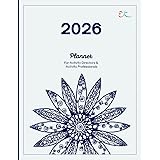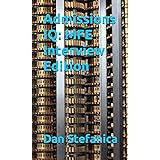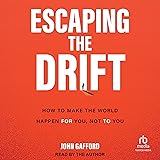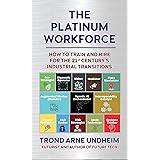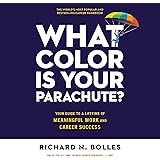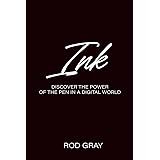Sharpening Your Observational Skills for Enhanced Attention to Detail
Observational skills are the bedrock of any strong **attention to detail** practice. It’s not just about looking, but truly seeing—perceiving the minutiae that others might overlook. The infamous 1999 NASA Mars Climate Orbiter incident, where a failure to convert units from metric to imperial led to the loss of a multi-million dollar spacecraft, stands as a stark reminder that even the tiniest oversight can have catastrophic consequences. To avoid similar pitfalls in your own work, consider these practical strategies for enhancing your ability to observe.Eliminating Distractions to Boost Focus
In today’s hyper-connected world, distractions are ubiquitous. Notifications ping, emails arrive, and the temptation to switch between tasks is constant. This fragmented approach, often glorified as “multitasking,” is, in reality, a significant drain on your cognitive resources. Our prefrontal cortex, the part of the brain responsible for executive functions like planning and decision-making, isn’t designed for constant, heavy-duty context switching. Each switch incurs a “cost” in terms of time and mental energy, making it harder to truly focus and drastically reducing productivity. To counteract this, actively cultivate a distraction-free environment whenever possible. Consider implementing strategies like the Pomodoro Technique, where you work in focused 25-minute sprints followed by short breaks. Turn off non-essential notifications on your phone and computer. Close irrelevant browser tabs. If your workspace is noisy, invest in noise-canceling headphones. Create a dedicated “deep work” block on your calendar where you commit to focusing on a single, critical task without interruption. By minimizing external and internal distractions, you create the mental space necessary for your brain to engage fully with the task at hand and significantly boost your **attention to detail**.Mastering the Art of Noticing the “Little Details”
Once you’ve carved out a space for focused work, the next step is to train yourself to actively look for the details. This goes beyond a superficial glance. Imagine you’re reviewing a crucial client proposal. Is every sentence grammatically correct? Are the formatting styles consistent throughout? Do all numerical figures align with the supporting data? Are time zones accurately listed for international calls? These seemingly minor elements can collectively impact the professionalism and credibility of your work. Practical techniques can help solidify this skill. Develop specific checklists for recurring tasks, ensuring you hit every point. For written content, try reading it backward, sentence by sentence, to break the flow and force your brain to focus on individual words and punctuation. When reviewing code, a “rubber duck debugging” approach—explaining your code line by line to an inanimate object—can help you articulate and spot errors. For complex projects, step away for a short break and then return with “fresh eyes,” often revealing details you missed before. The goal is to proactively seek out potential inconsistencies or errors, rather than simply hoping they won’t appear. It’s in this diligent examination that true **attention to detail** shines.The Power of Thorough Preparation: Reading Directions Completely
We’ve all been there: eager to start a project or assemble a new piece of furniture, we skim the instructions, confident we understand the gist. Then, halfway through, we discover a crucial step we missed, leading to frustration and rework. The video aptly illustrates this with the example of the professor whose $50 lay unclaimed because students never read the syllabus completely. This isn’t just about missing a prize; it’s about failing to grasp the full scope and requirements of a task. Before diving into any significant undertaking, allocate dedicated time to thoroughly review all instructions, specifications, and background materials. Ask yourself: * What is the ultimate goal of this task? * What are all the explicit requirements? * Are there any implicit assumptions I might be making? * What tools or resources are needed? * What are the potential pitfalls or common mistakes? Actively read by highlighting key points, making notes, and even drawing a mental map of the process. For complex projects, break down the instructions into smaller, manageable steps before beginning. This upfront investment in comprehensive understanding not only prevents errors but also streamlines your workflow, making you far more efficient and boosting your overall **attention to detail** from the very start.Cultivating Strong Organizational Skills for Precision Work
Exceptional **attention to detail** is inextricably linked to robust organizational skills. It’s challenging to notice the specifics when your world is in disarray. Imagine being asked for an immediate update on pending orders or the outcomes of a key meeting. Without a well-structured system, providing an accurate, effective answer becomes a frantic scramble, not a confident response. Building strong organizational habits creates a framework that supports meticulous work and allows details to emerge, rather than be buried.Streamlining Your Schedule with a Single Central Calendar
The modern professional often juggles multiple commitments: work meetings, personal appointments, project deadlines, and social engagements. Trying to track these across disparate calendars—one for work, one for personal, perhaps another for a specific project—is a recipe for missed appointments and mental overload. The solution is elegantly simple: consolidate. By using one central calendar, you gain a holistic view of your entire schedule. This reduces cognitive load, as you no longer need to check multiple sources to understand your availability. Whether you prefer Google Calendar, Outlook Calendar, Apple Calendar, or another tool, the key is consistency. Add all personal items, such as dentist appointments or family events, and all professional commitments, like weekly check-ins and client calls. Most digital calendars allow you to set visibility for personal items to “private,” ensuring your sensitive information remains confidential while still providing you with a complete overview. Furthermore, you can proactively block out focused work time or travel time, ensuring that when you commit to a task, you genuinely have the capacity to deliver with precision and **attention to detail**.Adopting a Consistent Task Management System
Just as a single calendar centralizes your time, a consistent task management system centralizes your responsibilities. The video emphasizes choosing “one way to make lists and check off tasks,” and this consistency is paramount. Whether your company uses a specific project management software like Asana, Trello, or Jira, or you prefer a simpler digital tool like Todoist, Microsoft To Do, or even a classic pen and paper notebook, the critical factor is adherence. The benefits are manifold: * **Never Forget a Task:** Every responsibility, no matter how small, has a designated place. * **Clear Priorities:** Most systems allow you to categorize, tag, and prioritize tasks, ensuring you focus on what’s most important. * **Track Progress:** Visually marking tasks as complete provides a sense of accomplishment and helps track project momentum. * **Reduce Mental Clutter:** Offloading tasks from your mind into a reliable system frees up mental energy to focus on the task at hand, significantly enhancing your **attention to detail**. Consider the context in which you work. A teacher unable to pull out their phone in class might find a small notebook or sticky notes more effective for capturing immediate thoughts. For larger, collaborative projects, a shared digital platform is ideal. The tool itself is less important than the discipline of consistently using it.Building Effective Routines for Sustained Attention
Routines are powerful tools for enhancing **attention to detail** because they automate decisions and reduce mental fatigue. When certain tasks become habitual, your brain expends less energy deciding “what next,” freeing up cognitive resources for focused engagement. Think of professional routines not as rigid structures, but as a series of intentional habits designed to optimize your performance. Consider establishing routines for critical moments in your day: * **Morning Review:** Start each day by reviewing your calendar and task list. Identify priorities, allocate focus time, and anticipate potential challenges. This proactive approach sets the stage for a day of deliberate work. * **End-of-Day Wrap-up:** Before concluding your workday, take 10-15 minutes to review what was accomplished, what remains, and plan for the next day. This prevents details from slipping through the cracks overnight. * **Task-Specific Routines:** If you regularly handle inventory, always schedule it after lunch when distractions are typically lower. If you manage client emails, dedicate a specific block of time to respond, ensuring thoroughness. * **Double-Checking Protocols:** Build a routine for reviewing your work. This might involve a specific checklist you run through before submitting a report or sending a crucial email. By consciously creating and adhering to these routines, you instill a rhythm of consistency and thoroughness in your work, making it significantly easier to maintain a high level of **attention to detail** without constant conscious effort.Elevating Communication Skills to Demonstrate Detail Orientation
Having excellent **attention to detail** is one thing; effectively demonstrating it in a workplace setting is another. This requires robust communication skills that not only convey information accurately but also reflect your meticulous approach to work. The video highlights two crucial, often contrasting, communication traits: confidence and humility. Mastering their balance is key to ensuring your detailed work is recognized and valued.The Dual Pillars: Confidence and Humility in Communication
Imagine a scale with confidence on one side and humility on the other. True professional effectiveness lies in knowing when and how to tip that scale, or better yet, keep it balanced. * **Confidence** allows you to articulate your findings clearly, present solutions with conviction, and stand by the accuracy of your meticulously researched details. It’s about speaking up when you’ve spotted an error that others missed, or when you have a well-thought-out suggestion based on your thorough analysis. Without confidence, even the most astute observations might go unspoken. * **Humility**, conversely, means being open to feedback, acknowledging that you might not have all the answers, and being willing to learn from others. It’s accepting constructive criticism on your detailed work without defensiveness and recognizing that collaboration can enhance overall accuracy. A humble attitude fosters trust, making colleagues more receptive to your detailed input. Finding this balance means confidently presenting your well-researched facts, while also humbly inviting questions and acknowledging the possibility of oversights. This nuanced approach not only showcases your **attention to detail** but also builds credibility and strengthens working relationships.Mastering Active Listening for Greater Clarity
Active listening is a foundational communication skill that directly impacts your **attention to detail**. It’s the difference between merely hearing words and truly understanding the message, including its nuances, underlying intentions, and unspoken implications. Great communicators recognize that dialogue is not a speech; it’s an exchange where understanding is paramount. To practice active listening: * **Focus Fully:** Give the speaker your undivided attention. Put away distractions, make eye contact, and avoid planning your response while they’re still talking. * **Listen for Verbal and Non-Verbal Cues:** Pay attention not just to the words, but also to tone of voice, body language, and facial expressions. These often convey as much, if not more, information. * **Paraphrase and Reflect:** Periodically rephrase what you’ve heard in your own words (“So, if I understand correctly, you’re looking for…”). This not only confirms your understanding but also makes the speaker feel heard and validated. * **Ask Clarifying Questions:** If something is unclear or vague, ask open-ended questions to elicit more detail (“Could you elaborate on what you mean by ‘streamlined process’?” or “What are your primary concerns regarding this approach?”). By actively engaging in this manner, you minimize misunderstandings, capture precise requirements, and gather all the necessary information, which are all critical inputs for meticulous work and superb **attention to detail**.Summarizing for Confirmation and Alignment
Following active listening, the practice of summarizing what you’ve heard serves as a powerful tool for ensuring alignment and demonstrating your meticulous capture of details. Whether it’s immediately after a conversation or a brief recap later, a concise summary offers several key benefits: * **Confirms Understanding:** It gives you the chance to verify that your interpretation matches the speaker’s intent. * **Highlights Disagreements:** Any discrepancies in understanding will quickly become apparent, allowing for immediate clarification. * **Reinforces Recall:** The act of summarizing solidifies the information in your memory. * **Builds Trust:** Demonstrating that you truly listened and understood fosters trust and confidence in your **attention to detail**. For instance, after a complex meeting, sending a brief email summarizing the key decisions, action items, and assigned owners can prevent confusion. Or, as the video suggests, recalling a key concept mentioned previously—”Last week you mentioned adding a senior coordinator to help with this account, and I think that’s a great idea”—immediately signals that you were truly engaged and retained critical information. When summarizing, stick to the main points and be succinct. This practice ensures that everyone is on the same page, preventing costly errors that stem from miscommunication. It’s a proactive step in error prevention, cementing your reputation for having exceptional **attention to detail**.Ultimately, enhancing your **attention to detail at work** isn’t about being perfect; it’s about consistently striving for accuracy, precision, and thoroughness in everything you do. By focusing on your observational skills, refining your organizational habits, and honing your communication, you’ll not only minimize errors and boost your productivity but also solidify your role as an invaluable asset to any team.


